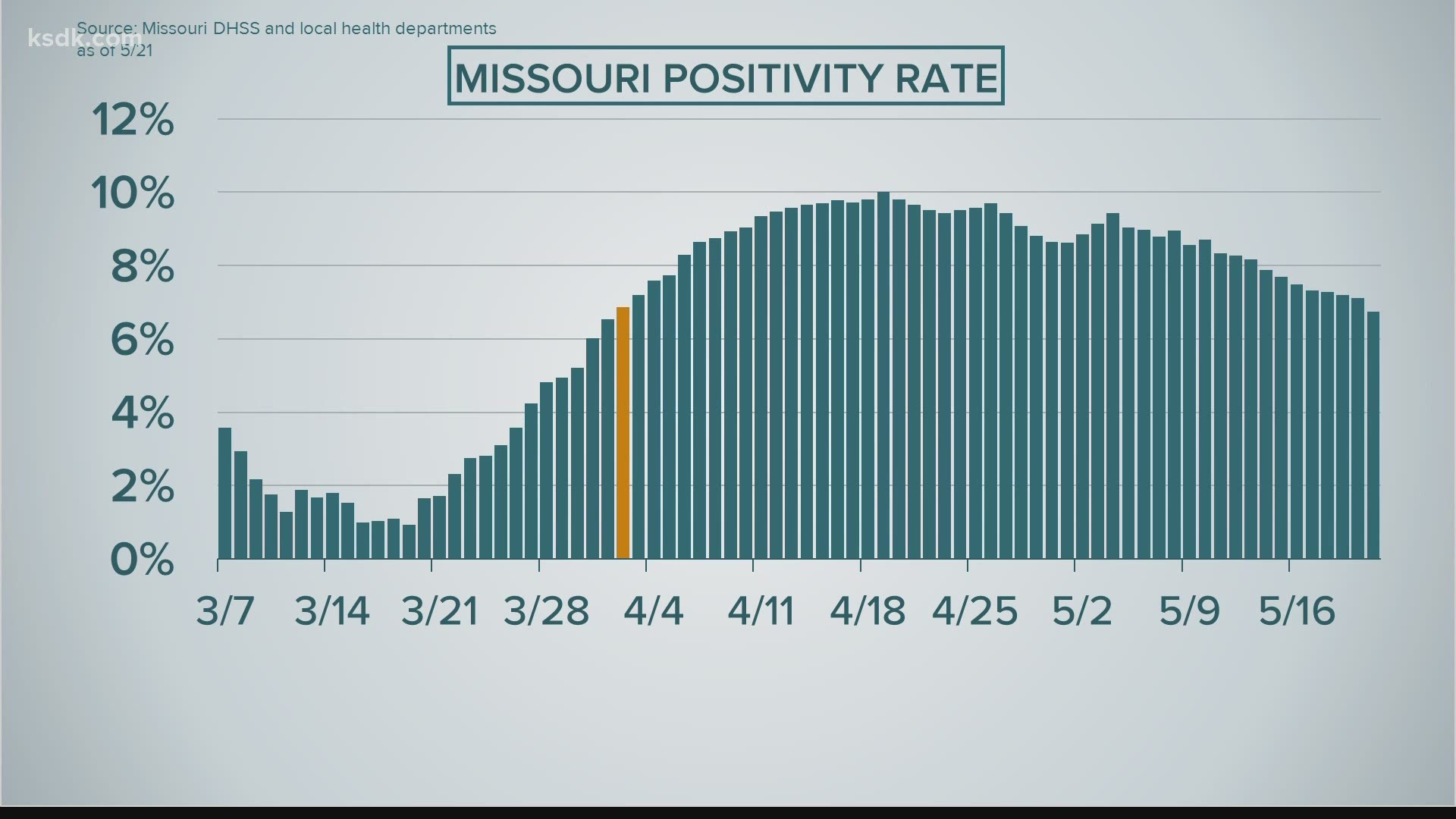COLUMBIA, Mo. — (AP) — Missouri Gov. Mike Parson on Thursday said the state plans to focus on widespread testing at nursing homes and state-run sites including prisons as it ramps up to a goal of 7,500 coronavirus tests per day.
The Republican governor said everyone at nursing homes and other long-term care facilities will be tested, with a goal of 1,850 tests at those locations per day. Another 1,440 tests per day are planned at prisons, mental health facilities and other state-run housing.
Parson said increased testing also will focus on what's called community sampling, meaning anyone can get tested regardless of whether they're at high risk or are symptomatic. Community sampling sites are only going up in certain locations, though.
“Testing will continue to be a major priority as we move forward," Parson said. "We cannot fully recover economically without increasing our testing numbers.”
The number of confirmed COVID-19 cases in Missouri rose by 108 on Thursday, raising the statewide total since the start of the pandemic to 11,340. The health department reported that another 30 people died, bringing the state’s death toll to 661.
Meanwhile, a student is suing the University of Missouri System, claiming that the four campuses did not offer sufficient refunds to students when classes were moved online because of the coronavirus pandemic.
The plaintiff's attorney, Richard Cornfeld, of St. Louis, said the university did the right thing when it closed in response to the coronavirus pandemic.
But the anonymous student and others “did not choose to attend an institution that only offered an online education,” Cornfeld wrote in the lawsuit. “Instead, they chose and paid or the complete in-person university experience."
Spokesman Christian Basi said in a statement that the university “vigorously” denies the claims in the lawsuit. He noted that the system has already returned some student fees, such as providing prorated room and board, moving remaining meal plan balances to the fall semester or refunding them to students who won't be returning, and refunding a portion of recreation center fees.
The lawsuit is one of dozens filed at colleges across the country by students unhappy with the switch to online learning.
The state Social Services Department said Thursday that it received a federal waiver to extend emergency food stamp benefits through June. The waiver will allow Missouri to continue offering the maximum food stamp benefits to everyone on the program.
Jennifer Tidball, the director of the Department of Social Services, warned in a news release that families should be prepared for their benefits to drop back to normal in July.
Elsewhere, the state health department said it was dropping an emergency rule that gave the health director the authority to ban large gatherings and gave local health officials the authority to close schools and bar other gatherings during designated statewide pandemics.
The agency wrote that it needed the change “to ensure that the director of the Department of Health and Senior Services has the clear and immediate authority to limit the size of public gatherings to limit the spreads” of the coronavirus.
“This emergency amendment provides for the isolation or quarantine of persons and animals with a communicable disease and their contacts,” the agency wrote May 1 in the Missouri Register. “It also authorizes the closing of schools and places of public and private assembly as well as the issuance of gathering orders.”
Nineteen Republican state senators wrote a letter urging the department to nix the rule. Republican Sen. Bob Onder claimed it would give local health officials permanent authority to close schools, churches and other gatherings.
But health department spokeswoman Lisa Cox said in an email that the rule “did not increase the power of the Department or local health authorities.”
“Bottom line, the considerable amount of confusion and misunderstanding regarding what the amendment does outweighed the benefits of the rule,” she said.
___
Associated Press writer Margaret Stafford reported from Liberty, Missouri.

